Search
Search Results
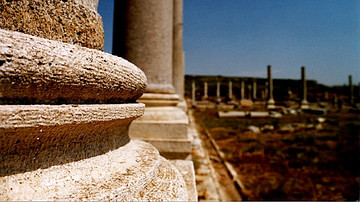
Image
Perga / Perge
Perge was an ancient Greek city in Anatolia and the capital of Pamphylia, the Archaeological site of Perge has been excavated systemically by Istanbul University since 1946. Archaeological finds in Perge date back to different periods beginning...

Video
Apollonius, Boxer at Rest, c. 100 B.C.E.
More free lessons at: http://www.khanacademy.org/video?v=FvsSPJoJB3k
Apollonius, Boxer at Rest, c. 100 B.C.E., bronze, Palazzo Massimo, Museo Nazionale Romano, Rome
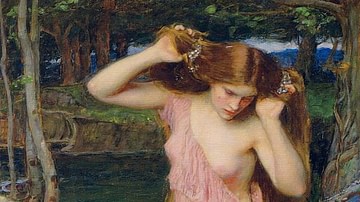
Definition
Lamia
Lamia is a female or a hermaphroditic demon found in Greek mythology who devoured children and seduced men. She appears in literature as early as the 6th century BCE and is said to be fearsome to look upon with an ugly face, the upper body...
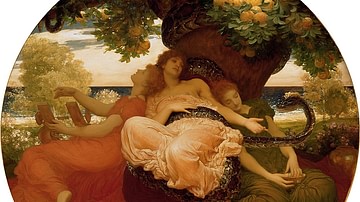
Definition
Hesperides
The Hesperides are nymph-goddesses of the evening and the west in Greek mythology. They were the daughters of Atlas, the Titan who bore the heavens on his shoulders, and Hesperis, the personification of the west, or Nyx, the personification...
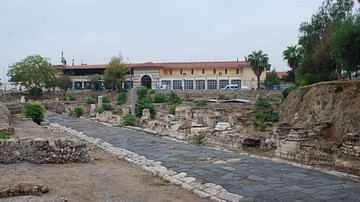
Definition
Tarsus
Tarsus was a city in ancient Cilicia located in the modern-day province of Mersin, Turkey. It is one of the oldest continually inhabited urban centers in the world, dating back to the Neolithic Period. It was built close by the Cydnus River...
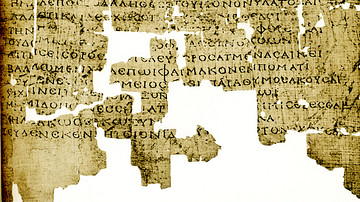
Definition
Callimachus of Cyrene
Callimachus of Cyrene (l. c. 310-c. 240 BCE) was a poet and scholar associated with the Library of Alexandria and best known for his Pinakes ("Tablets"), a bibliographic catalog of Greek literature, his poetry, and his literary aesthetic...
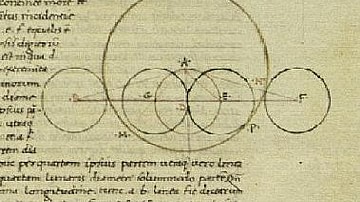
Definition
Greek Astronomy
Ancient Greek astronomy was the study of the universe to understand how it functioned and why apart from the established theistic model that claimed all things were ordered and maintained by the gods. Ancient Greek astronomers relied on observation...
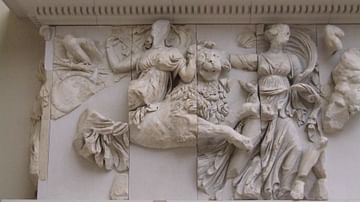
Definition
Rhea
Rhea (also spelt Rheia) is a Titan and a mother goddess in Greek mythology. She is the daughter of Gaia (Earth) and Uranus (Heaven) and the mother of the great deities of Mount Olympus. Rhea was closely associated with the Phrygian (Anatolian...
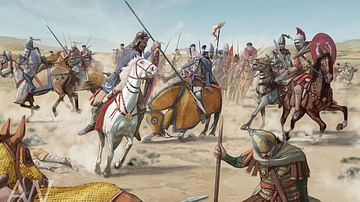
Definition
Battle of Immae
The Battle of Immae (272 CE) was fought between the forces of the Roman emperor Aurelian (270-275 CE) and those of the Palmyrene Empire of Zenobia (267-273 CE) resulting in a Roman victory and, ultimately, the capture of Zenobia and an end...
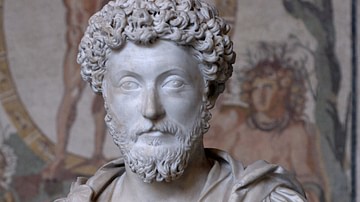
Article
Marcus Aurelius: Plato's Philosopher King
Plato's concept of the Philosopher-King (one who governs according to philosophical precepts and higher truths) is thought to be best exemplified through the Roman emperor Marcus Aurelius Antoninus (r. 161-180 CE), the last of the Five Good...